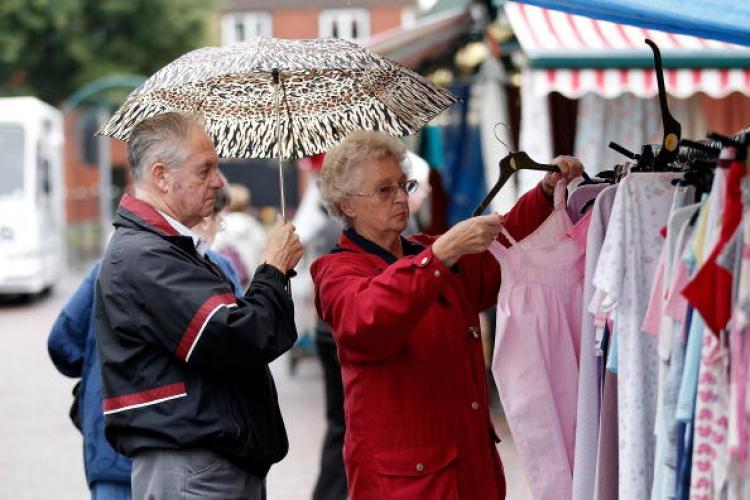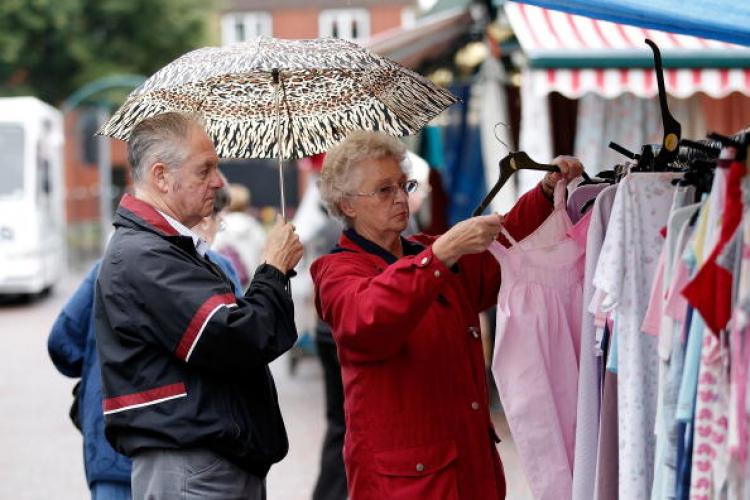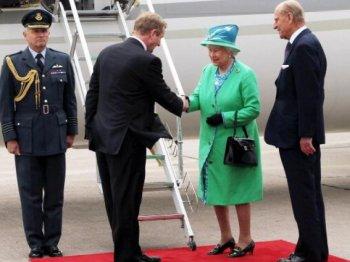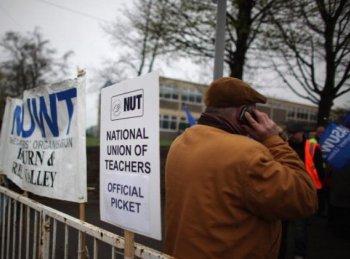UK Inflation Rises to 4 Per Cent After VAT and Fuel Go Up
UK inflation means shoppers must save for a rainy day again.

Shoppers must save for a rainy day, again. These bargains hunters were at Bolton Market on August 17, 2010 when figures for the UK inflation rate had slowed. The Office for National Statistics stated on Tuesday that VAT (which has gone up to 20%) and fuel (which hit a record high of £1.27 per litre on average in January) were the main factors for the present increase. Photo by Christopher Furlong/Getty Images
|Updated:




